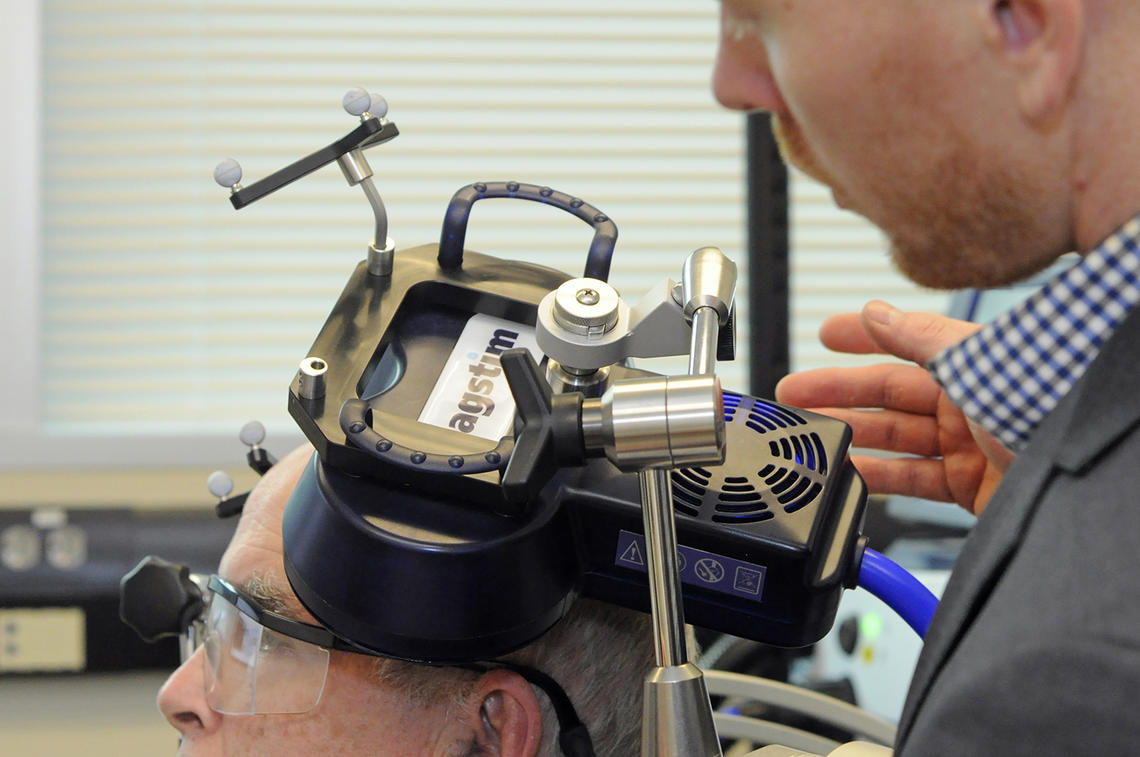May 17, 2018
Can transcranial magnetic stimulation improve brain function for people with Parkinson's disease?

The device makes a tapping sound and participants feel a light pressure in the targeted brain area.
Pauline Zulueta, Cumming School of Medicine
For most people, Parkinson’s disease affects movement — causing tremors, impaired balance and slowness of movement. However, those with Parkinson’s are also six times more likely to develop Parkinson’s disease dementia, a condition that affects mainly executive functions in the brain such as multitasking, planning, reasoning and decision-making. This makes daily living activities a challenge and there is no current treatment.
Researchers at the Cumming School of Medicine want to know whether transcranial magnetic stimulation, or TMS, can improve thinking or memory function for people living with Parkinson’s disease.
TMS is a non-invasive method to stimulate nerve cells in the brain using a handheld device that produces small electric currents. In pilot studies, TMS has proven to be an effective treatment for people with depression.
The research team with the Parkinson’s Disease Cognition Action Neuroimaging (PCAN) Lab is currently recruiting study participants between 50 and 90 years old with a confirmed Parkinson’s disease diagnosis and mild thinking and memory problems. Interested participants can contact info@pcanlab.ca for more information.
Scroll through the slideshow below to learn more about the study.












